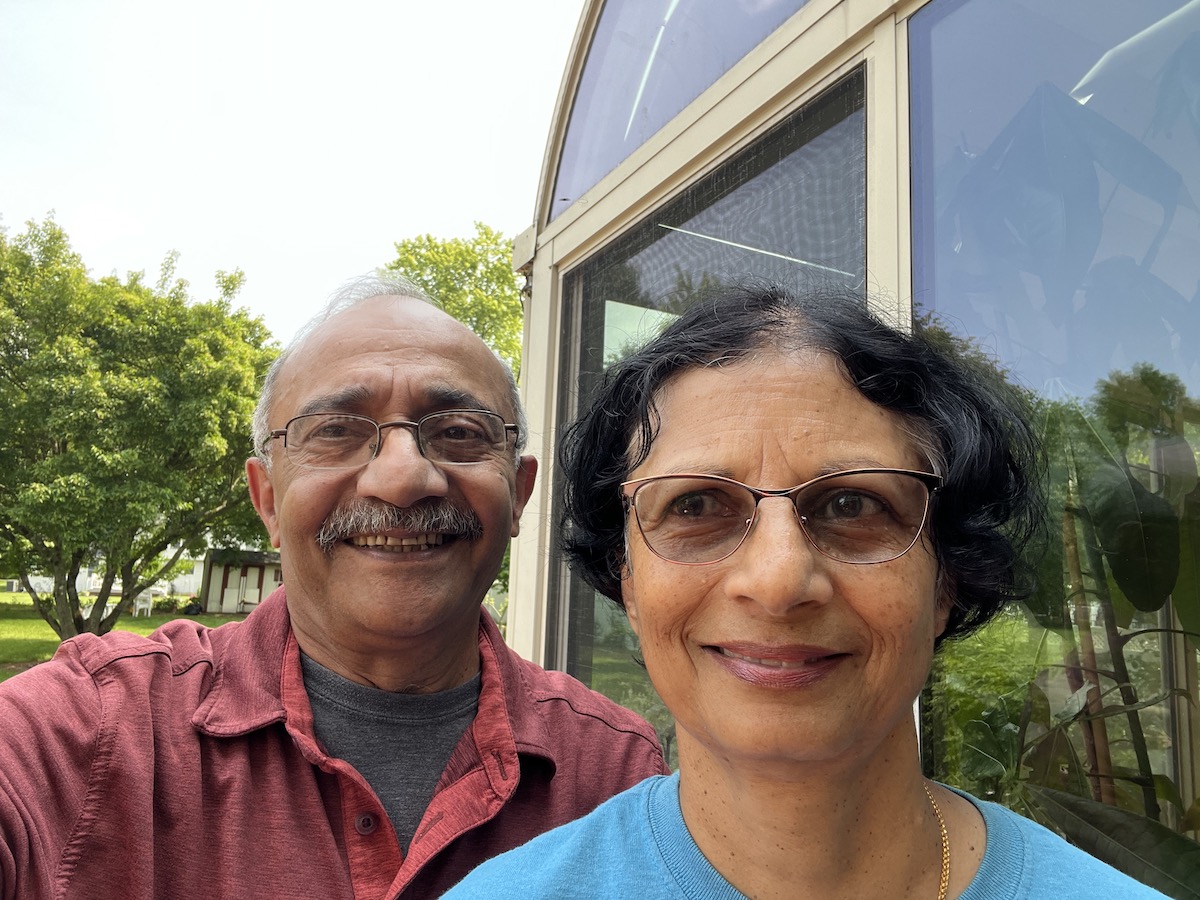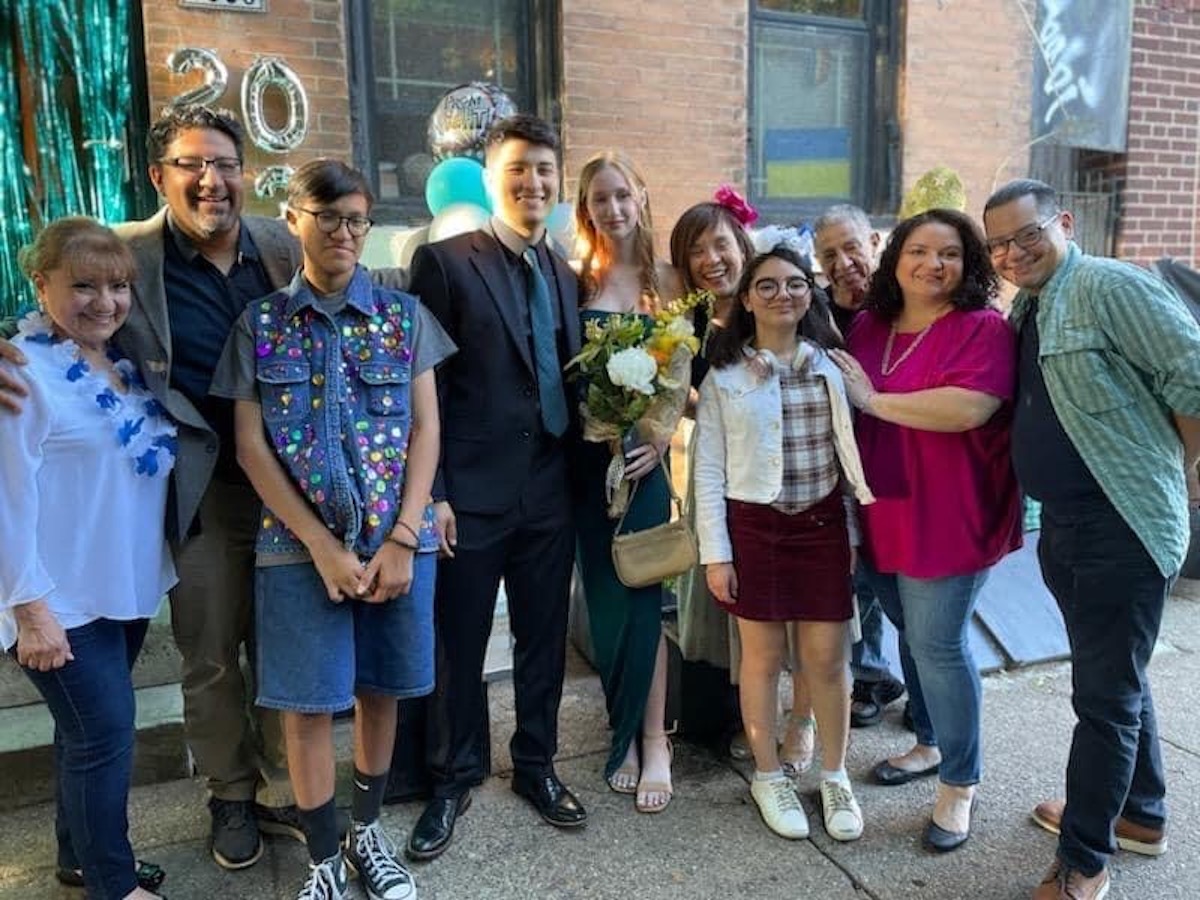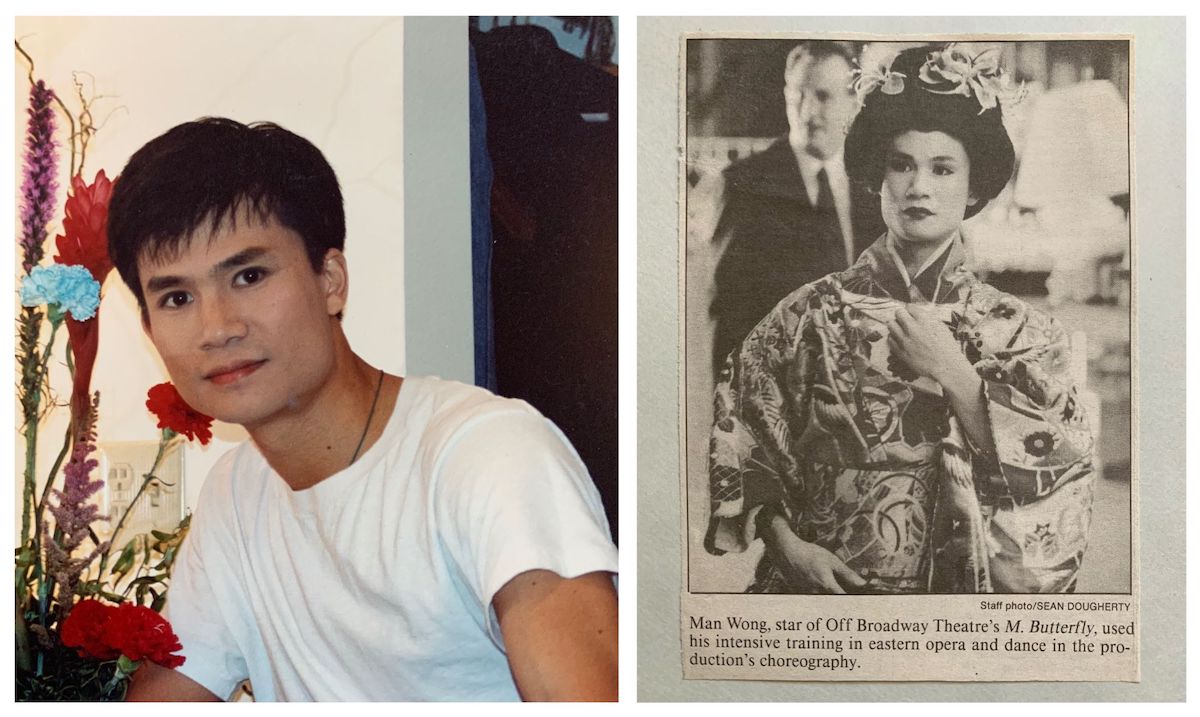They face some unique challenges — for instance, the average age of retirement in the US currently stands in the early 60s, but for many, pressures of economic strain, family responsibilities and pride have kept them working much longer.
Philadelphia is currently home to the largest immigrant population it’s seen since the 1940s, with about 15% of current residents reporting that they were born in another country, per Pew’s recently released State of the City 2023 report. Immigrants comprised 19% of Philadelphia’s workforce in 2018, and 24% lived in poverty. Many live in multigenerational households.
A Technical.ly analysis of five-year IPUMS census data shows around 66,700 immigrants ages 65 and older lived in Philadelphia from 2016 to 2020, including more than 50,000 who earn $35,000 or less.
China is currently the top country of origin for Philadelphia immigrants, representing 10% of the city’s about 229,000 immigrant residents. The next most common is the Dominican Republic, then India, Vietnam and Jamaica. Many live in immigrant-dense communities like South and Northeast Philadelphia, where they’re near people with shared experiences, but some older immigrants still face challenges in navigating this period of life.
Thriving in Philadelphia
Technical.ly’s Thriving series looks at how different groups in the Philadelphia region and beyond think about their work, life and economic success. In this feature, we largely focused on the thousands of older immigrants who make or made their living in a working-class career. What have they gained from immigrating to the US, and what has stood in their way to success?
Much has changed about immigration to the US in the last century, but the reasons for immigrating have stayed relatively the same. Pew’s 2018 research suggests that Philadelphia’s relative availability of lower-skilled and unskilled job opportunities in sectors where immigrants have typically found work — health care and consumer services, for instance — have drawn people here. Generations who settled in the region decades ago set up communities and support networks that have continued to draw younger generations today. Philadelphia is a top immigration hub, along with San Jose, New York, Boston, Seattle, Minneapolis and Denver.
The folks we interviewed for this story said that freedom of career choice, better economic opportunity or family pressure ultimately brought them to Philadelphia.
And while some found success in their careers and family lives, and thought often of their trajectory as “the American dream,” others have been struggling with the green card process. Some have recently left long-loved careers behind, while others can’t get work. Those who have been in the US for decades agree: It’s a more challenging and politicized time to be an immigrant right now.
Kalpana Venkat, 64, and Ramesh Venkatakrishnan, 70: on the ‘typical American dream’

The Venkats at their Mount Laurel home. (Courtesy photo)
Though Kalpana Venkat, 64, and her husband Ramesh Venkatakrishnan, 70, have been in the Philadelphia region for decades and consider it home, it took time to build a community and family around them.
Venkatakrishnan first came to the US in 1975 to study geology and taught at the University of Virginia and other area universities after he received his doctorate in 1980. The pair had an arranged marriage in India in 1982, and they lived in Virginia until about 1990 when they moved just outside of Philadelphia to Mount Laurel, New Jersey.
Venkat describes their goals at the time as “a typical American dream.”
“Our aspirations here were to have financial stability, a stable job that recognized your skill sets and what you brought to the table, and the American dream of owning a home, paying it off and sustaining yourself in retirement,” she told Technical.ly. “And ensuring you can give your children a good, stable life. We have a daughter, and we’ve been able to do that.”
Venkat worked in computer science and as a technical manager throughout her career, often in Philadelphia. The couple excelled in their careers and found them fulfilling, though they both recently retired.
In India, there weren’t as many career options, they said. The thinking for those heading to the US is that you would train, work hard and be rewarded.
“That is how it worked for us,” Venkat said. “We came here with pretty much nothing. I came here with two suitcases, some clothes and Indian pots and pans I needed. Everything I have today is through our hard work, determination.”
Though they had professional ease, sometimes, the early days in the US were lonely. Venkat described at times feeling othered or made to feel weird because the food they’d eat might be different than their neighbors. She’s always been aware of how her identity as a brown woman was perceived in society. She and her husband tended to make friends who became family — people who weren’t necessarily from their region of India, but were alike.
“At least we have people who look like us, who eat similar food,” she said. “And you build a community. Yes, we have our blood relatives, but the relatives we made here, the relationships we built here, helped from a community perspective.”
The immigrant experience has changed in America, the couple agreed. While they’ve had periods of their life when they felt different from other folks, because of the previous federal administration and over the last several years, hostility toward immigrants has risen, they said. Venkat used to ride public transportation into the city often and has found herself more guarded and on alert.
The couple is now exploring their lives without work and within their new family system. They have time to enjoy hobbies like crafting and are working to stay in good physical health. They talk to their granddaughter in Boston almost every day, and sometimes consider what a move to be closer to her would look like. Venkat’s father, who stayed in India, recently died. It’s made them reflect on the good and the bad.
“But you know, he had a good life,” Venkat said of her dad. “He knew that we were about to become grandparents and he was about to become a great-grandfather.”
“You take the blessings with the other, you know, the bad parts that come as part of life,” she added.
Cecilia Johnson, 65: ‘I’m a strong woman’
Like many immigrants coming to the US for the first time, Cecilia Johnson came to Philadelphia in 2015 specifically because she had family already living here. She first went on a one-year visa because of a conference with her church. She visited New York in 2016 but returned home to Liberia soon after to save up money for the visa process. In 2017, she returned to Philadelphia and has lived in South Philly ever since.
In the past few years, Johnson, now 65, has started the green card process, but her experience has been unlike the Venkats’. Instead of feeling welcomed, Johnson has felt stuck and uncertain.
She’s paid more than $1,000 in fees over the last few years on paperwork and legal processing, but hasn’t seen much progress. Only in November was she fingerprinted — a step in the right direction, she said. But Johnson has no idea how long the process will take.
Johnson faced a lot of trauma at home, she said. In 1990, her husband and daughter were killed in the first Liberian Civil War, which lasted nearly a decade and left 200,000 people dead. Johnson suffered a gunshot wound that year. She also endured a head injury when she returned to Philadelphia in 2017 that required brain surgery. Johnson has grandchildren who still live in Liberia — two boys and a girl — who she doesn’t often get to see or talk to.
For her, leaning on her religion and relationship with God guides her through these rough periods.
“‘Why lord, why me?’” Johnson said. “That’s me every day.”
Because she hasn’t received her working permit yet, she hasn’t been able to find a job; ideally, she’d take a job cleaning, working at a store or cutting hair. Johnson has leaned on her cousin, who has helped her get settled in Philadelphia and has supported her financially over the last few years.
For her, independence will be the key to thriving. She’s tired of being in this in-between period — settled in Philadelphia, yet waiting for the legal system to give her the green light to get a job and earn a living.
“It’s just been worrying, thinking. Worrying, thinking,” Johnson said. “I’m a strong woman, I can work.”
Alvaro Chicue, 75: ‘Trying to get my own life’

Alvero Chicue, third from right, on his grandson’s recent prom night. (Courtesy photo)
Alvaro Chicue, 75, also lives in South Philadelphia, and his life path has followed a similar trajectory to Johnson’s. He came to Philadelphia a few years ago after living in New York, where he was a jeweler.
He said he struggled with getting a job when he first came to the US in 1982, but eventually took on work in the jewelry industry thanks to help from a friend. Chicue went on to work at Tiffany & Co. for decades until he retired about six years ago. Chicue described the US as having “more opportunity” than his home country of Colombia.
Chicue liked and took pride in his work, and in working for a big company like Tiffany & Co.
“I’ve been blessed with better opportunities,” he said.
When Chicue first moved to Philadelphia, he lived on his own, but for the past few years, he’s been living with family — his son, daughter-in-law and two grandsons. He said his financial situation isn’t exactly ideal, but enough to get by.
“I’m really so happy to have the … not enough, but an OK situation,” he said.
Chicue cited spending time with his family — especially his grandsons — as his favorite part of this phase of his life. Chicue’s son Alvaro Drake-Cortes, who helps new immigrants to the US through his work at Philadelphia’s Welcoming Center, told Technical.ly Chicue recently helped his oldest grandson learn to drive.
Chicue said his current focus is figuring out what to do with this time without work, and as he and his grandsons age.
“I’ve been trying to get my own life, doing things I enjoy,” he said.
Man Wong, 65: On learning the foundation for ‘being a good human’

Man Won during his performing arts career. (Courtesy photos)
Though Man Wong has reached retirement age, his work remains his passion at this phase of his life. The 65-year-old Morrisville, Bucks County, resident has worn many professional hats over the years.
He immigrated from Hong Kong to Philadelphia in his early 20s with his family. As a child, Wong told Technical.ly, he had been trained as a fine artist and actor — just one of a few chosen from his province to do so. And as a young adult, before immigrating, he trained as a chef. It was standard practice for people moving to the US, he said: To better assimilate into US restaurants, men and women would be trained as chefs and servers, respectively.
Wong’s first job when he arrived in Northeast Philadelphia was in a family restaurant. He stepped into “another level,” taking on low-ranking jobs within the restaurant like bussing. That eight months of finding his footing was the “most uncomfortable” time for him until he rose up the restaurant’s ranks.
Wong said he coped by taking on a persona. At work, he went by a different name, considered his work uniform a costume and “played a role” until it was time to go home and “be himself” again.
But Wong held onto his childhood dream of pursuing a performing arts career. The opportunities were better in New York, so he moved there and got involved in theater groups and acted in productions for about a decade. He’s performed internationally, worked as a choreographer and booked a variety of shows.
“All these things, I was very hot and welcomed. I did approximately 10 productions during those years, when others would do maybe two,” he said. “But probably with my age, immigrant background and language accent, I don’t think I can reach the top levels of Hollywood.”
An injury requiring surgery also brought Wong back to the Philadelphia region. By 1993, he’d returned to a family-owned restaurant in the Northeast and decided to set his sights on building up family-owned establishments. He took to the role with a passion he said he’s had in all of his career paths — something instilled in him when he was training as an artist in his teen years.
The immigration process was easier back in the 1980s, Wong said. His family had moved from China to New York and the surrounding cities “for decades.” He gained citizenship in just a few years.
Since his return to Philadelphia in the 1990s, Wong has opened up four restaurants, one in Philadelphia, but most in Bucks County. He laments that Chinese food doesn’t get the same accolades as other cultures’ food, and his restaurants have focused on modernizing and bringing attention to Chinese dishes — “I always feel that we are being underestimated,” he said.
Wong has faced many challenges affecting the restaurant industry, including more recent labor shortages and the closing of his restaurants because of the pandemic. Despite this, he feels like his work and mindset keep him thriving. It’s what drives him, he said.
“I have to thank my mentors. When I was very young, I was training intensively. In the field, they taught me not only the technique of acting but being a good human,” Wong said. “That gave me the foundation of the values, good values for my lifetime.”

This report is part of Thriving, a yearlong storytelling initiative from Technical.ly focused on the lived experiences of Philadelphia and comparative city residents. The goal is to generate insights about the economic opportunities and obstacles along their journeys to financial security. Here's who we're focusing on and why.
Before you go...
Please consider supporting Technical.ly to keep our independent journalism strong. Unlike most business-focused media outlets, we don’t have a paywall. Instead, we count on your personal and organizational support.
3 ways to support our work:- Contribute to the Journalism Fund. Charitable giving ensures our information remains free and accessible for residents to discover workforce programs and entrepreneurship pathways. This includes philanthropic grants and individual tax-deductible donations from readers like you.
- Use our Preferred Partners. Our directory of vetted providers offers high-quality recommendations for services our readers need, and each referral supports our journalism.
- Use our services. If you need entrepreneurs and tech leaders to buy your services, are seeking technologists to hire or want more professionals to know about your ecosystem, Technical.ly has the biggest and most engaged audience in the mid-Atlantic. We help companies tell their stories and answer big questions to meet and serve our community.
Join our growing Slack community
Join 5,000 tech professionals and entrepreneurs in our community Slack today!

The person charged in the UnitedHealthcare CEO shooting had a ton of tech connections

From rejection to innovation: How I built a tool to beat AI hiring algorithms at their own game

How a laid-off AI enthusiast pivoted to become a founder — while holding down a day job




